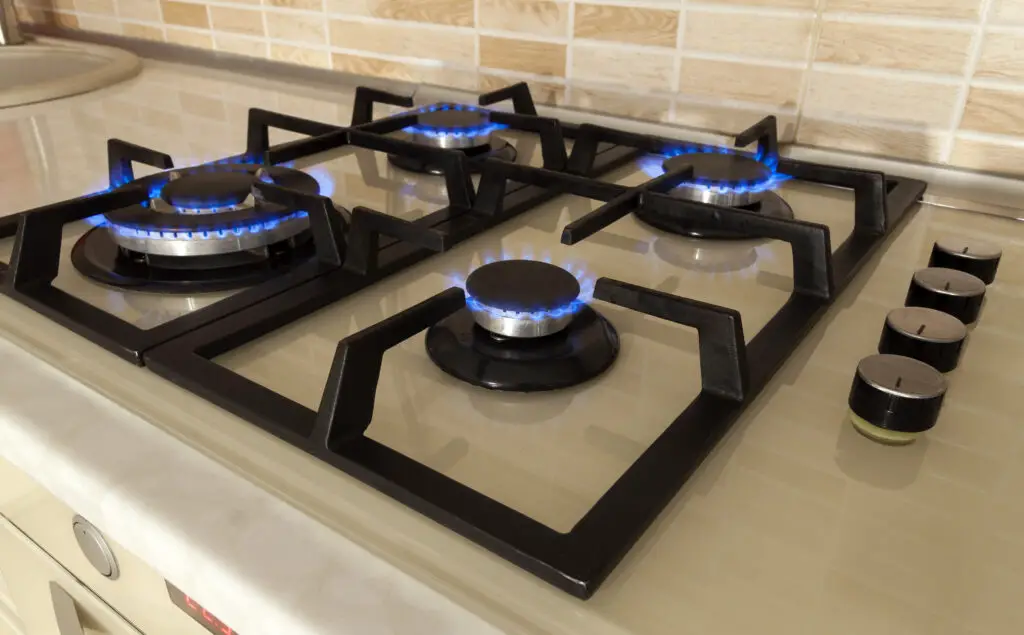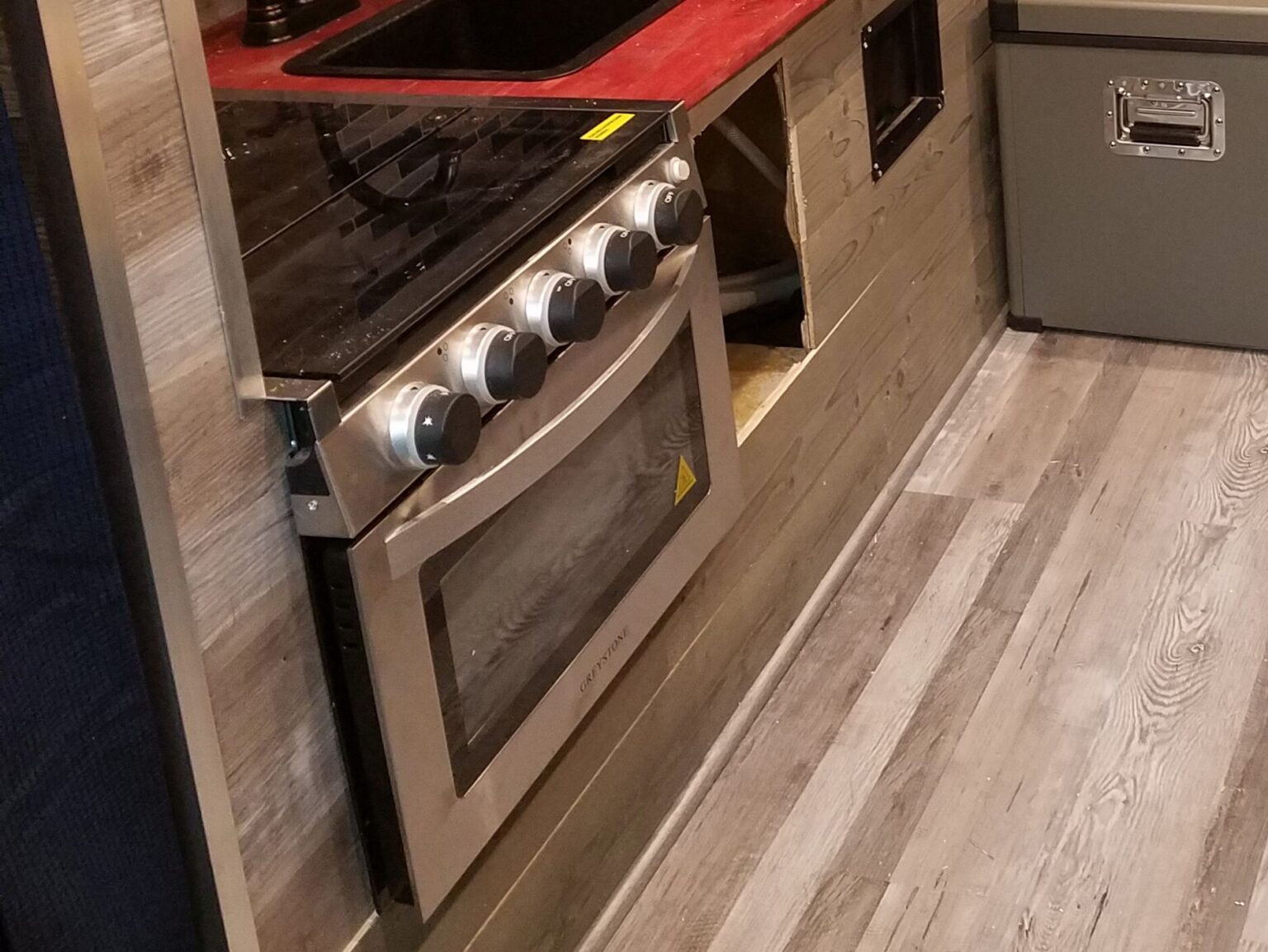Cooking in a camper can be tricky. Luckily, propane RV stoves make cooking easy no matter where you’re parked. With the right stove, you can enjoy hot meals on the road without hassle.
Whether you’re on an extended family trip or camping for a weekend, a dependable cooking option is important. Therefore, choosing a propane stove is one of the simplest and most efficient solutions.
Propane RV stoves heat food quickly and do not require electrical hookups. In addition, they are lightweight, compact, and easy to travel with. In this guide, we’ll cover different stove types, safety tips, fuel sources, and cleaning advice. You’ll also see a list of top-rated propane stoves so you can find the one that best fits your needs.
Why Reliable RV Propane Stoves Matter
Having a reliable RV cooktop stove is essential for camping. It lets you prepare meals and heat water, which makes your outdoor experience more comfortable.
Propane stoves remain popular with RVers because they’re convenient and efficient. Moreover, they are easy to maintain, which makes them a smart choice for cooking on the road.
Types of RV Propane Stoves
Single burner stoves
These are the most basic propane stoves. For example, they’re perfect for boiling water, frying an egg, or making coffee.
Two and three burner stoves
These provide more versatility. You can prepare more complex meals and cook multiple dishes at once. As a result, they’re great for families or longer trips.
- Easy temperature control – Light up temperature controls make adjusting heat levels a breeze. Plus, with the option for …
- Sleek design – Available in stainless steel or black, this RV stove adds a touch of modern style to any kitchen on wheel…
- Efficient propane-powered – Say goodbye to bulky electrical stoves and hello to the convenience of a propane-fueled stov…
Portable camping stoves
Portable propane stoves are highly versatile. They’re ideal for day trips, picnics, or setting up outside your RV. In fact, many campers carry one as a backup.
Drop-in propane ovens with cooktops
These combine an oven and cooktop in one unit. They fit standard countertop cutouts and save space compared to standalone ovens. On the other hand, they require installation, so they’re best for RVers planning long-term use.
When choosing, consider your cooking habits. A single burner works for simple meals. In contrast, a multi-burner or drop-in oven suits more elaborate cooking. Portable stoves offer flexibility if you enjoy outdoor cooking.
Safety Considerations
- Proper ventilation: Always ventilate the area where the stove is used. This prevents carbon monoxide buildup and keeps the air safe.
- Regular maintenance: Clean the stove often and replace worn or damaged parts. Therefore, inspecting hoses for cracks or abrasions is vital.
- Compatible equipment: Use the correct regulator and hose for your stove and propane tank. In addition, always follow the manufacturer’s recommendations.
Fuel Source
- Propane tank size: Use the right size tank so your stove functions properly. For instance, small tanks are fine for portable stoves, while built-in stoves may need larger tanks.
- Regulator and hose: A compatible regulator and hose ensure safe, reliable performance. Moreover, checking them before every trip prevents leaks.
Stove Location
- Place the stove on a level surface to prevent tipping. Also, secure it with clamps or straps if needed.
- Keep the flame away from flammable materials. As a result, you lower the risk of fire or explosions.
Cleaning and Maintenance
Clean your stove after every use. A quick wipe with mild soap and water prevents buildup.
Regularly check hoses and connections:
- Close all valves before inspecting.
- Look for cracks, wear, or other damage. If you find any, replace the hose.
- Use a soapy water solution to test for leaks. For example, bubbles forming around a connection mean it’s leaking.
- Open valves one at a time and listen for hissing, which also indicates a leak.
Address problems right away. Otherwise, they can lead to dangerous situations.

Environmental Considerations
- Dispose of empty propane tanks safely. Take them to a recycling facility or a store that accepts propane tanks. Never throw them in the trash.
- Close the valve and label the tank “empty” before disposal. In addition, transport it carefully to avoid hazards.
- Never leave a stove unattended while in use. Therefore, you reduce the risk of accidents and protect the environment.
Conclusion
RV propane stoves are a convenient and reliable option for campers. They let you prepare meals, boil water, and enjoy the comfort of home while traveling.
For safe use, remember the basics: choose the right stove, ventilate the area, perform regular maintenance, and dispose of propane tanks responsibly. In fact, following these steps ensures stress-free cooking on the road. As a result, you’ll enjoy your camping trips more while protecting both yourself and the environment.



